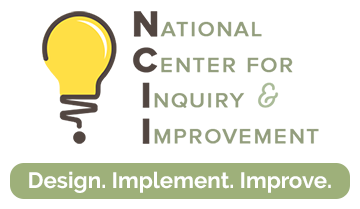NCII is launching the Rural Guided Pathways Project and inviting community colleges to apply for this new initiative.
The Rural Guided Pathways Project is a three-year project in which a national cohort of 15 rural community colleges will work with each other — and with community partners in their regions — to implement evidence-based, institution-wide reforms grounded in the guided pathways framework. Participating colleges commit to:
- Designing and implementing a better student experience at their colleges.
- Collaborating with key stakeholders in their regions to increase economic opportunity in the region and be partners in the implementation of a cross-sector approach to guided pathways.
- Implementing evidence-based reforms that will address inequity and lead to improved educational and workforce outcomes.
This project is the first of its kind in two ways:
- Rural focus. It is the first time a pathways institute structure is focused specifically on the needs of rural institutions.
- Community partners. It is the first time community partners are deeply embedded in pathways implementation. In prior pathways projects, institutions were asked to involve outside organizations in work on discrete topics, such as dual enrollment. In this project, regional partners will be an integral part of each college’s team. The need to involve external stakeholders from the onset of pathways work — and to give them specific roles and responsibilities — is becoming increasingly clear. This need, moreover, is amplified in rural settings, where students’ education, residents’ economic mobility, and the regional economy are so closely intertwined.
Thus, the CEO of each participating institution will designate five or six (5–6) community partners who are committed allies in enhancing regional economic opportunity. These community partners will participate in the project for its duration, including Institute participation (when content is relevant) and all in-person coaching visits. These community partners might include employers, economic development entities, transfer partners, K–12 institutions, community-based organizations, and others. They should share an aligned vision of the potential of this work to increase economic opportunity in the region as well as be partners in the implementation of a cross-sector approach to guided pathways. While the stakeholders selected for this role will vary by community, the common thread should be that these community partners have the regional relationship capital to advance the project’s implementation efforts.
This is three-year project is funded by Ascendium Education Group and a small group of regional philanthropies. Applications are due March 1, 2022. Following a selection process led by NCII and including national partners, 15 institutions will be selected for participation. The project begins in spring 2022 and ends in August 2024.
